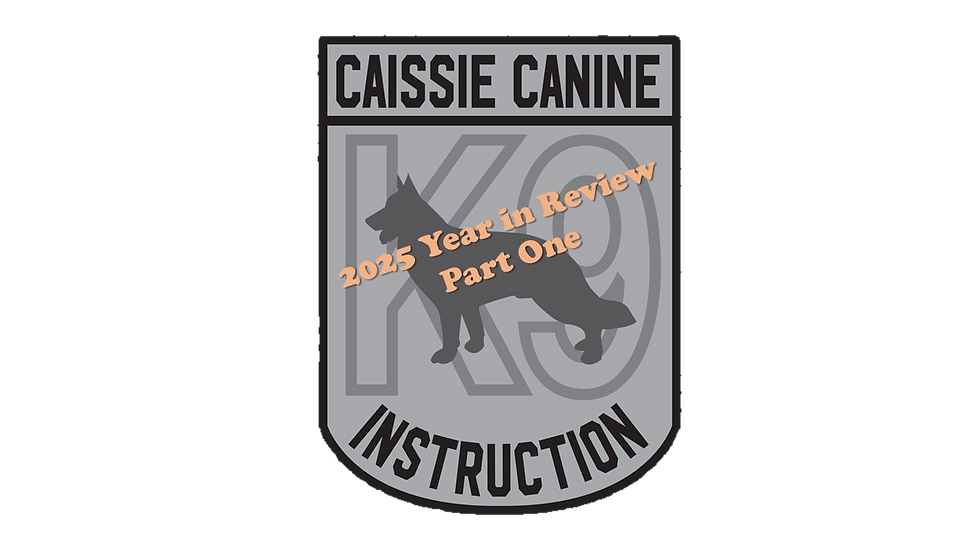Caissie Canine Instruction: Help!!! My dog is Itchy
- caissiecanineinstr

- Aug 5, 2024
- 3 min read

We begin this week’s “RUFF TAILS” featuring a beautiful 8.5-year-old Golden Retriever/Pyrenees named Jordie.

My name is Jordie, I have been recently adopted, and I am loving my new home with my older female sibling, Tora. I am feeling protective of “my girl, Tora” during our walks. I have growled at some of the other dogs that we have met along the way.
My mom contacted Paul and he taught my mom how to calm me down when I am feeling protective while out for walks. I am getting much better walking on the leash and do not feel incline to pull as much or growl at other dogs.

I am even sharing my toys and playing with “my girl” Tora. Life is good and it is only getting better!
K9 CORNER WITH THE CHIEF
This month we are going to talk on “Small Dog Training”. I must admit I really enjoy the small breeds because in my police dog training years I worked mostly with medium to large size breeds.
Behaviour management can be a challenge with small dogs because they can be targeted by other animals. Training is important for small breed dogs to ensure they are not fearful or aggressive because of their size.
Small dogs can be prone to anxiety and nervousness due to their size and may also develop a condition known as “small dog syndrome”, where they act overly dominant or spoiled.
Understanding these tendencies is the first step in effective training. It is important to set clear boundaries and not overindulge your dog just because of its small size. Treat your small dog as you would a larger dog. Consistency is the key in setting boundaries with your dog. Ensure you walk your dog instead of “carrying” them everywhere. This will help prevent dominance issues and/or anxiety.
Training a small dog requires patience, consistency, and understanding. By setting clear boundaries, using positive reinforcement, and addressing any behavioural issues promptly, you can help your small dog become a well-behaved and happy companion.
Welcome to Doggie Dialogue
There are many reasons your dog maybe itchy. Many K9’s occasionally scratch, however if your K9’s is frequently licking, scratching or rolling around on the rug, this could an indicate a medical condition.

This medical condition is usually referred to as “skin allergies”. Here are a few potential culprits that may cause the itching.
1. Food Allergies: Some dogs are allergic to common dog food ingredients such as beef, chicken, or dairy products. Food allergies can lead to changes to the skin around their belly, armpits, face and paws. (Our dog Jaxon, is allergic to “feathers”)

2. Environmental: These allergens can be pollen, mold spores, or dust mites.

3. Flea Allergy: Flea bites can be extremely itchy and can be found anywhere on the body, but most common on the hind legs, tail base or rear-end.

4. Contact Allergy: This is when your K9 encounters insecticides, plants, or household cleaners.
When your dog experiences these changes due to what could be an allergy, here are a few treatment options for you to consider.
1. Over the counter K9 shampoos and/or oils. Treatment like coconut oil and itch relieve shampoos only provide temporary relief. However, you will need to get to the “root” cause.

2. Antihistamines can work; however, we find for environmental allergies (pollen, mold, etc…) this type of treatment usually offers little to no benefit.
3. We recommend prescription steroids from your vet, as these can be very effective. However, there can be side effects to this medication, such as increased urination, thirst, and weight gain. Some K9’s even has a shift in their behaviour, such as increased aggression.

This can be an on-going issue for some K9’s, we recommend to please seek out veterinarian assistance for any questions, concerns, or medical support.




Comments